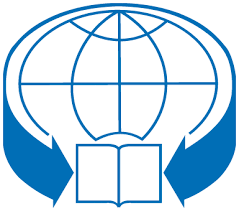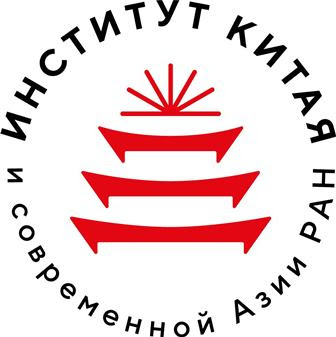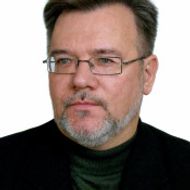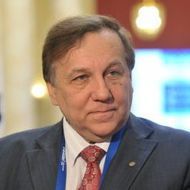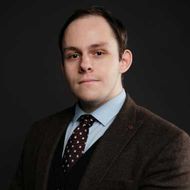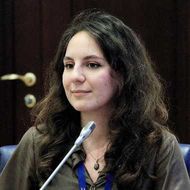Vladimir Putin, President of the Russian Federation
"Russia is assuming the chairmanship of BRICS, and I am confident that we will do everything to ensure that the so-called World Majority feels not only that it is a majority in terms of the population of our countries, but also a majority in terms of its development prospects." (International Parliamentary Conference Russia - Latin America, September 23, 2023)
Sergey Lavrov, Minister of Foreign Affairs of the Russian Federation
"Today, Russia is fighting for all those who want to 'live by their own mind and traditions,' without facing new manifestations of Nazism, and the World Majority understands this." (Wreath-laying ceremony at the commemorative plaques in the Ministry of Foreign Affairs building, May 8, 2024)
Sergey Karaganov, Honorary Chairman of the Presidium of the Council on Foreign and Defense Policy, Academic Supervisor of the Faculty of World Economy and International Affairs at the HSE University
"I am confident that, in the face of an extraordinarily tense military-political situation and geostrategic upheavals, Russia will save the world. However, this time—not by sacrificing itself, as the Soviet Union did. By saving ourselves, we will save the rest of the world: the entire World Majority." (Journal "International Affairs," December 27, 2023)
The world today is changing — rapidly and irreversibly — and is facing numerous challenges driven by the trajectory of several key trends.
First, the strengthening position of non-Western countries, which now comprise the World Majority, is having a significant impact on global processes. In recent decades, this World Majority, encompassing countries in Asia, Africa and Latin America, has played an increasingly significant role in shaping the new international order. These countries have been exhibiting steady economic growth, are actively engaged in international trade and politics, and are making substantial contributions toward addressing critical global issues, such as climate change and social inequality. Thus, they are contributing to the creation of a new global economic order. Within this context, such heightened activity is bolstering interregional links along the South-South axis, which in turn are midwifing the formation of a new international space centered on the Global South.
Second, the international governance and regulatory institutions established during and after the Cold War are clearly in crisis, making them ill-equipped to effectively address contemporary challenges. This is manifested in the lack of effective mechanisms for harmonizing the divergent interests of diverse states, even as global challenges continue to snowball unabated in terms of both quantity and intensity.
The third significant trend involves the swift pace of the Fourth Industrial Revolution, particularly as seen in the rapid digitalization of Asia. Innovations in areas such as artificial intelligence (AI), the Internet of Things (IoT), and blockchain technology are radically transforming economic and social structures, and stimulating economic growth, while opening up new avenues for international cooperation and development.
These trends call for in-depth, comprehensive analysis by the academic community, whose role is currently of paramount importance. For Russia, it is imperative to identify potential avenues for cooperation and to map out practical steps for their implementation. Russia’s eastern regions are increasingly engaging in this process, with Russia's ‘Turn to the East 2.0’ implying a substantial role for Siberian regions in particular. Developing such new solutions will require significant joint intellectual efforts, for which this key event — the VI International Conference: The World Majority towards a New International Order — marks a critical starting point.
Organizer
School of Regional Studies, Faculty of World Economy and International Affairs, HSE University
Partners
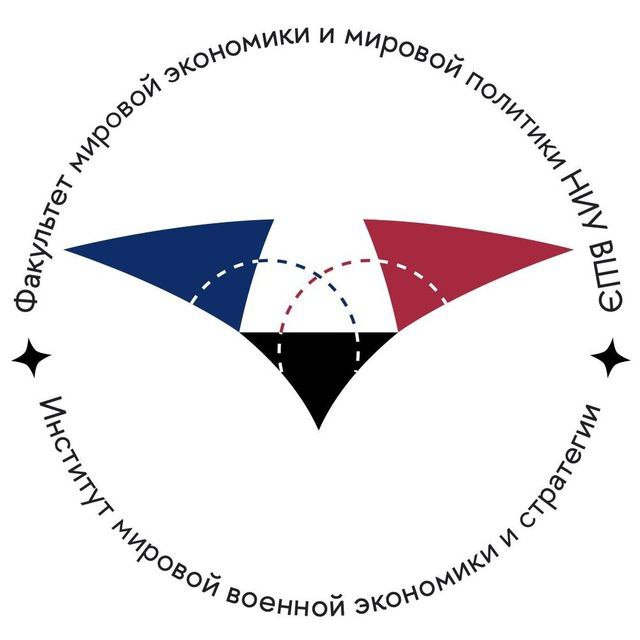 Institute for International Defense Economy and Strategy, HSE University
Institute for International Defense Economy and Strategy, HSE University
Conference Programme
Venue:
HSE University
Pokrovka Complex
Buildings A, F and G
11 Pokrovsky Bulvar
Moscow
Event Access Map
-
09:30 – 10:00
Registration of Participant
-
10:00–10:30 am (Rus-Eng) A201 (White Hall)
Welcoming Speeches
-
10:30 –11:30 (Rus-Eng) A201 (White Hall)
Program Report: ‘Turn to the East 2.0 or the Siberization of Russia’
Dr Sergey Karaganov, DSc, Academic Supervisor, Faculty of World Economy and International Affairs, HSE University, Honorary Chairman, Presidium of the Council on Foreign and Defense Policy
-
11:30–12:00 A210 (Red Hall)
Coffee Break
-
12:00 – 13:30 (Rus-Eng) A201 (White Hall)
Plenary Session "The World Majority and the Structuring of International Multipolarity"
Moderator: Olga Volosyuk
-
13:30 – 14:30 A210 (Red Hall)
Lunch
-
14:30– 17:00 (Rus-Eng) A201 (White Hall)
Section 1. "New International Political, Financial-Economic Order—the Middle East Caucus"
In partnership with IOS RAS
Moderator: Andrey Baklanov
Central topics:
- The position of the MENA countries regarding existing international financial-economic institutions (IMF, IBRD, WTO, specialized UN system agencies)
- New formats and mechanisms for interaction between states at the global and regional levels, views from Middle Eastern countries
- What do countries in the region expect from cooperation with the Russian Federation?
- Can there be a shift in Western approaches towards greater consideration of the interests of the "World Majority" states?
-
14:30– 17:00 (Rus) A208 (Blue Hall)
Section 2. "Turn to the East 2.0: the Asian Vector of Russia's Siberization"
Moderator: Ilya Kozylov
Central topics:
- Siberia’s transportation, logistics, resource, and industrial potential in terms of sub-regional links (Central Asia, East Asia)
- The domestic economic and political factors driving Russia’s turn to Siberia
- Prospects for the ‘Siberization’ of Russia's foreign and economic policy through the lens of Asian partners’ perceptions
- Siberia’s ‘soft power’ potential: the prospects and opportunities for leveraging the unique historical and cultural heritage of the Siberian macro-region in the context of relations with World Majority countries
-
14:30– 17:00 (Eng) G202
Section 3. "Asian Countries on the Path to Digital Transformation"
In partnership with IOS RAS
Moderator: Evgeny Kanaev
Central topics:
- Digital Transformation: Building the Theoretical Foundation and Asian Practices
- Digital Transformation of Society: Global Trends and the Specifics of Asian Actors
- The Digital Dimension of Asian Formats and Multilateral Cooperation Initiatives
- Central Bank Digital Currencies as a Priority for Asian Countries
-
14:30– 17:00 (Rus-Eng) F201
Section 4. "Central Asia as a Regional Subsystem of the World Majority"
In partnership with ICCA RAS
Moderator: Sergey Luzyanin
Central topics:
- Central Asia – security agenda: external and internal challenges and threats, issues stemming from transnational crime, drug trafficking and religious extremism
- Economic integration and infrastructure formats – the Eurasian Economic Union (EAEU), Belt and Road Initiative (BRI), Shanghai Cooperation Organization (SCO)
- Russia on bilateral Central Asian tracks (Kazakhstan, Turkmenistan, Uzbekistan, Kyrgyzstan, Tajikistan): priorities, problems, constraints
- The US and EU in Central Asia: the impact of Ukrainian events on the strategy and tactics for engaging the region in the Western anti-Russian strategy
-
14:30– 17:00 (Rus) A209 (Green Hall)
Section 5. "Cohesion of the Collective West: Causes and Limits"
In partnership with Institute for International Defense Economy and Strategy, HSE University
Moderator: Dmitri Trenin
Central topics:
- What will be the U.S. approach to its allies depending on the outcome of the presidential elections?
- What are the reasons behind Europe's close alignment with the U.S. during the Ukrainian crisis? How stable is this consolidation in the mid-term perspective?
- What are the limits and prospects of "dissidence" within the Western alliance?
- Are there opportunities for the U.S.'s Asian allies to gain greater foreign policy independence?
-
14:30– 17:00 (Rus-Eng) F301
Section 6. "Socio-economic and Political Factors Shaping the South-South Dialogue"
In partnership with INION RAS
Moderator: Alexey Kuznetsov
Central topics:
- The Rise of the East as a Prerequisite for the Intensification of the South-South Dialogue
- BRICS and Other Formats of Interaction in the Global South
- The Position of Leading Developing Countries in the South-South Dialogue
-
14:30– 17:00 (Rus) G302
Round Table "Methodological Problems of Modern Regional Studies"
Moderator: Marina Glaser
Central topics:
- Theory of Regional Studies: The Problem of Initial Definitions
- Regional Studies within the System of Social, Humanitarian, and Economic Sciences: Boundaries and Areas of Intersection
- Key Approaches in Regional Studies: Regional Studies from the Perspective of the Most Common Methodological Paradigms
- General and Specific Aspects in Regional Studies: Features of Studying Individual Regions
-
10:00 – 13:00 (Rus)
Online conference of young researchers
Registration
Registration of attendees for the main conference sections is closed.
Location: HSE University - Russian Federation, Moscow, 11 Pokrovsky Boulevard.
Working language: Russian, English (simultaneous interpretation).
Possible forms of participation: offline and online.
The organisers do not cover travel and accommodation expenses of the participants.
The Honorary Chairs of the Organising Committee
Sergey A. Karaganov
DSc, Academic Supervisor, Faculty of World Economy and International Affairs, HSE University; Honorary Chairman, Presidium of the Council on Foreign and Defence Policy
Anastasia Likhacheva
PhD, Associate Professor, Dean, Faculty of World Economy and International Affairs, HSE University
Organising Committee
DSc, Professor, Head, School of Regional Studies, Faculty of World Economy and International Affairs, HSE University; Chairman of the Organizing Committee
DSc, Professor, Head, CCEIS Asia-Pacific Centre, School of Regional Studies, Faculty of World Economy and International Affairs, HSE University
DSc, Professor, Head, Сhina and East Asia Centre, School of Regional Studies, Faculty of World Economy and International Affairs, HSE University
PhD, Professor, Head, Middle Eastern and North African Centre, School of Regional Studies, Faculty of World Economy and International Affairs, HSE University
Lecturer, School of Regional Studies, Faculty of World Economy and International Affairs, HSE University
Lecturer, School of Regional Studies, Faculty of World Economy and International Affairs, HSE University
Lecturer, School of International Regional Studies, Faculty of World Economy and International Affairs, HSE University
Coordinators



Contacts
For all organisational questions, please contact Murad Sadygzade, msadygzade@hse.ru


